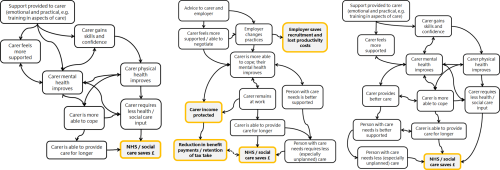 Service configuration | Service improvement | Integrated Care
Service configuration | Service improvement | Integrated Care
Scoping study: the economics of caring
There is a clear moral case for supporting unpaid carers. They play an essential role in the lives of the people they care for; they often do so at a cost to their own wellbeing. But what is the economic case for supporting carers? And to what extent does the evidence base support this case?…